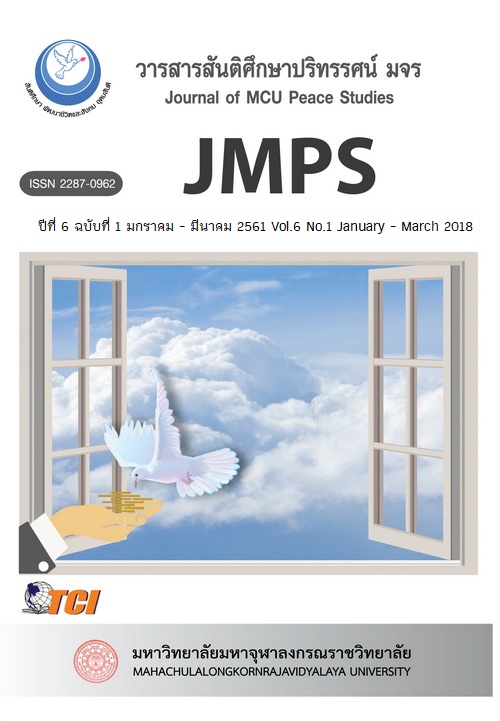Coping Mechanisms of Child Development Centers for Service Delivery in the Insurgency Area in Three Southernmost Provinces of Thailand
Main Article Content
บทคัดย่อ
Insurgency in the three southernmost provinces of Thailand threatens child development centers and creates challenges in service delivery. This article examines the coping mechanisms of three centers by focusing on their core elements of service delivery. The qualitative approach was applied by interviewing three directors and six caregivers, selected purposively based on their duty as formal leaders and insiders of the centers. The coping mechanisms adapted by these child development centers consisted of 28 techniques. Ten strategies to cope with the element of potential of staff included creating and instilling proper behavior, adjusting behavior, organizing on-site trainings, conducting trainings with networks, supporting staff in attending trainings elsewhere, helping staff for further education, communicating for morale support, encouraging self-motivation, providing rewards, and assigning proper and meaningful responsibility. Nine strategies to deal with the element of quality of learning and care consisted of increasing intensive care for children, providing activities to support children’s development, educating children on self-protection, organizing meetings for relevant parties, concentrating on the safety of children and staff, informing parents about services, informing parents about children’s security, creating good interactions, and building customers’ trust in quality care. Nine strategies to handle the element of customer focus were explaining restrictions during insurgency, arranging parent-teacher meetings, increasing fact-to-face interactions, maximizing IT capacities, applying public relations, sharing knowledge and experiences among caregivers and customers, visiting children’s families, communicating through documentary method, and providing activities for parents to participate. This paper suggests that the supervisors should win the hearts and minds of staffs and develop strong collaboration with networks. The administrators and staff members themselves should seek more knowledge and skills concerning self-protection in the context of insurgency before passing them on to children. Moreover, there should be an assignment of a particular person to be responsible for social media interactions.
Article Details
ทัศนะและความคิดเห็นที่ปรากฏในบทความในวารสาร ถือเป็นความรับผิดชอบของผู้เขียนบทความนั้น และไม่ถือเป็นทัศนะและความรับผิดชอบของกองบรรณาธิการ ยินยอมว่าบทความเป็นลิขสิทธิ์ของวารสาร


